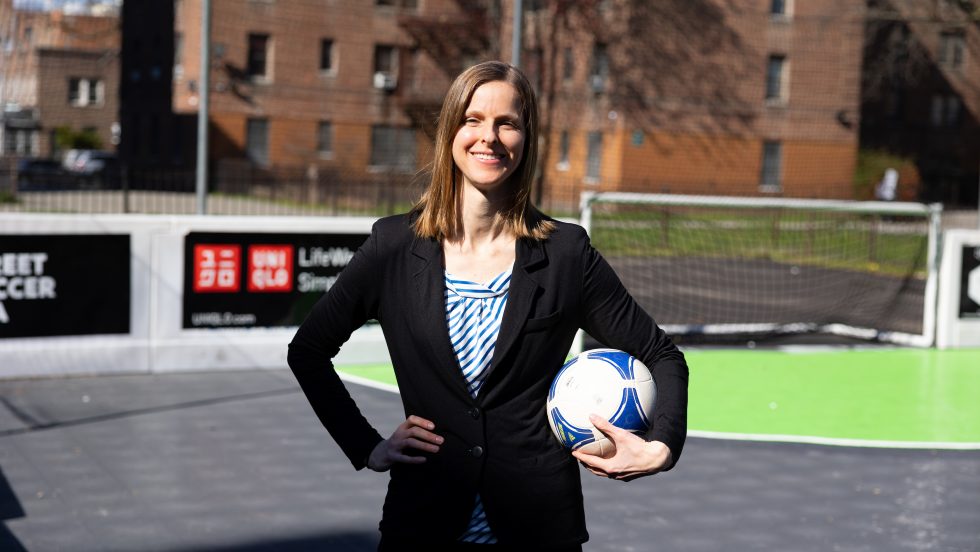
Youth from marginalized communities should have wider exposure to sports, said Meredith Whitley, PhD.
Youth of color from low-income neighborhoods face many challenges. Among them is limited access to a wide range of sports opportunities. Sports enable children to develop confidence, self-esteem, resilience, collaborative skills and a sense of belonging.
“Sports, when done right, is an incredible space that gives young people the feeling that they belong,” said Meredith Whitley, PhD, professor of health and sport sciences at Adelphi University. “It’s very important for them to feel part of something bigger than themselves, to be part of a team. It’s also quite valuable to cultivate an environment where young people can share their opinions and take on meaningful leadership roles where they help shape their own sport experience.”
In sharing her vision for how sports should look for all young people, particularly those who identify as BIPOC (Black, Indigenous and people of color), Dr. Whitley served as the lead guest editor of a recent special issue of the Sociology of Sport Journal. She was also the lead author of the special issue’s introduction: “A Critical Examination of Race and Antiracism in the Sport for Development Field: An Introduction.”
Keeping it in the community
Among its suggestions, the article calls for rejecting the “white savior” myth that presupposes the only way to improve the plight of racially marginalized groups is through top-down programs run by those outside the communities where these programs take place.
“What percentage of sports programs in communities where racial minority groups are highly represented are led by people from the very same communities?” Dr. Whitley asked. “The percentage is quite low, which is concerning.”
Dr. Whitley said that those who live outside those communities should instead become allies and advocate for programs that are created and run by people with strong community ties and lived experiences.
“Who knows best what is needed?” she asked. “It is the people who have established the community partnerships, who know the community’s strengths and challenges, and who are invested in the sustainability of the programs being created. That’s where we need to provide more resources and support.”
Kids shouldn’t have to “pay to play”
Dr. Whitley, a former collegiate athlete and coach, dislikes the “pay-to-play” model that exists in many communities. Under pay-to-play, only children whose families can afford to pay get to participate in sports activities.
“Pay-to-play is trending in the wrong direction,” she said. “Cutting kids off because of their talent level or their family income is not the right approach. Sports shouldn’t be exclusionary. It should be inclusive and welcoming.”
Dr. Whitley served on the President’s Council on Sports, Fitness and Nutrition in 2020 and 2021 and was lead author of two articles on how sports can help meet young people’s mental, emotional and social needs. But the council shifts its focus every two years. Today, its attention is on getting more older Americans active in sports. (Pickleball, anyone?)
Replace empty gestures with real action
In her research, Dr. Whitley has found organizations whose stated commitment to anti-racism has been superficial at best, such as statements that call for racism to end.
Instead, Dr. Whitley highlighted the need for organizations to be more intentional and thoughtful, ensuring actions are tied to their words and decisions are made by a representative group. “There need to be conversations that don’t only involve people in the front office [team executives and league commissioners]. There need to be athletes with lived experience regarding these issues at the table advocating for change, ensuring the actions identified will be meaningful, achievable and sustainable.”
Citing an example of a youth sports program done right, Dr. Whitley studied eight youths in 2019 who played on the Street Soccer USA team and compared their experiences to those of players from Street Soccer Scotland. Both teams participated in the Homeless World Cup, an international tournament that raises awareness about homelessness. Her research found that the soccer programs promoted healing and resilience, which helped the participants adapt to their current circumstances and believe in their ability to create a better future.